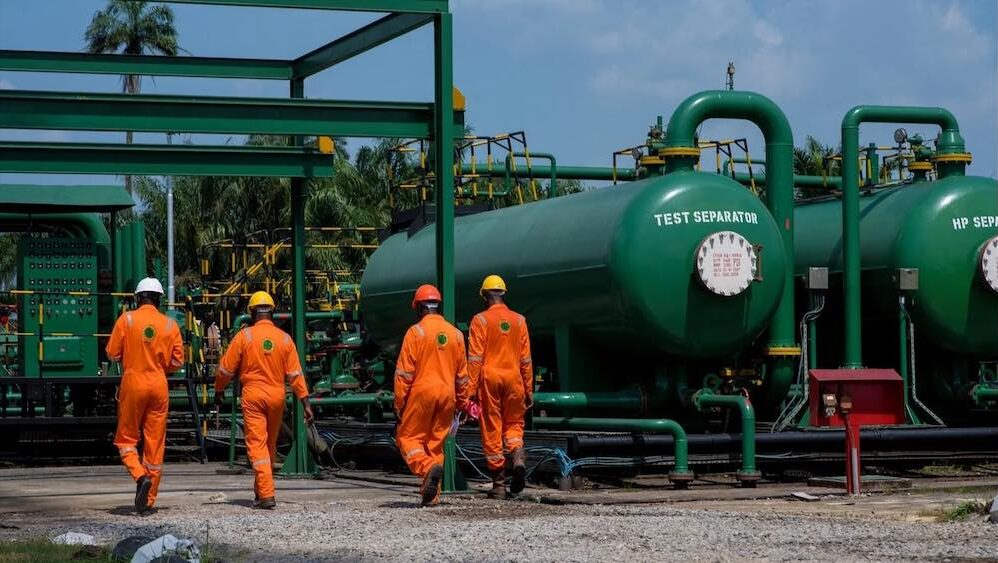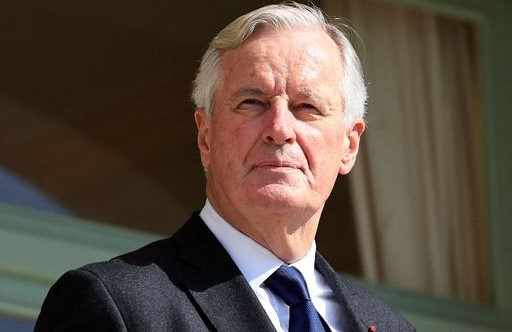Trump’s Tariffs Threaten Nigeria’s Economy: Oil, Trade, and Strategic Responses in Focus
TL;DR: Trump’s 14% tariffs on Nigerian exports, effective April 5, 2025, threaten oil revenue and raise import costs, pushing Nigeria to diversify trade and boost local production for economic stability.
Abuja, Nigeria – April 6, 2025: Nigeria, Africa’s largest economy, faces a new economic challenge as U.S. President Donald Trump’s sweeping tariffs, enacted on April 5, 2025, begin to ripple across global markets. With a 14% tariff imposed on Nigerian exports to the United States—part of Trump’s “reciprocal” trade policy targeting countries with trade surpluses—experts warn of potential disruptions to Nigeria’s oil-dependent economy and broader trade dynamics. As the nation grapples with this shift, strategic responses will be critical to mitigate the fallout and seize emerging opportunities.
A Hit to Oil and Beyond
The tariffs, announced on April 2, 2025, in the White House Rose Garden, impose a baseline 10% levy on all U.S. imports, with higher rates for 60 trading partners deemed “worst offenders,” including Nigeria at 14%. While energy products like crude oil—Nigeria’s primary export to the U.S.—are exempt from these tariffs, the indirect effects could still sting. Nigeria exports approximately $10 billion annually to the U.S., with oil accounting for nearly all of this under the African Growth and Opportunity Act (AGOA). However, economists caution that a global trade war sparked by these tariffs could dampen demand for oil, pushing prices down and slashing Nigeria’s revenue.
“If global production slows due to reduced trade, demand for crude will fall,” said Chukwu Emeka, an economist at Lagos-based consultancy firm EcoAnalysis. “With oil prices already volatile, a drop to $60 per barrel or lower could shrink Nigeria’s projected earnings by billions, straining an economy already battling inflation and currency depreciation.” Nigeria’s 2025 budget, predicated on oil prices above $70 per barrel, could face immediate pressure, exacerbating fiscal deficits.
Non-oil exports, such as agricultural goods like cocoa and sesame seeds, face the 14% tariff directly, threatening their competitiveness in the U.S. market. Sheriff Balogun, president of the Nigerian-American Chamber of Commerce, noted, “These tariffs could cut into the $277 billion in goods Nigeria has exported to the U.S. since AGOA began in 2000. Smaller exporters may struggle to absorb the added costs.”

Economic Fallout and Domestic Pressures
The tariffs coincide with a strengthening U.S. dollar, which weakens the naira further—already down significantly in recent years. This raises import costs for essentials like food and fuel, with food inflation reported at 35.41% in January 2024 and likely worsening. “A weaker naira means higher living costs, hitting consumers hard and potentially shrinking jobs in import-reliant sectors,” Emeka added. Posts on X reflect growing public concern, with one user noting, “Trump’s tariffs could spike prices here while oil revenue drops—double trouble for Nigerians.”
Globally, retaliatory tariffs from other nations, such as China’s 34% levy on U.S. goods, could redirect trade flows, offering Nigeria a chance to fill gaps but also risking a broader economic slowdown. Sola Obadimu, Director General of the Nigerian Association of Chambers of Commerce, Industry, Mines and Agriculture, warned, “A global downturn could outweigh any short-term gains. We’re not ready to capitalize fully yet.”
Nigeria’s Response: Adaptation and Diversification
To weather this storm, Nigeria must act swiftly. Economic experts urge the government to prioritize domestic resilience over knee-jerk reactions to U.S. policy. “Every country acts in its own interest—Nigeria must too,” Obadimu said. Key strategies include:
- Boosting Domestic Production: With U.S. imports facing higher costs, Nigeria could ramp up local manufacturing of goods like refined oil, wheat products, and vehicles—items currently imported at high expense. President Claudia Sheinbaum’s plan in Mexico to increase corn and fuel production offers a blueprint, suggesting Nigeria could target self-sufficiency in agriculture and energy.
- Diversifying Trade Partners: The tariffs may accelerate a shift toward the Global South, as suggested by South African economist Annabel Bishop. Nigeria could deepen ties with China, the EU, and intra-African markets via the African Continental Free Trade Area (AfCFTA). “If the U.S. market shrinks, we need alternatives ready,” Balogun said.
- Leveraging Oil Flexibility: Though exempt, Nigeria’s oil can be redirected to other buyers if U.S. demand falters. Strengthening ties with India and Europe, already significant importers, could offset losses, though lower global prices remain a risk.
- Currency and Inflation Management: The Central Bank of Nigeria may need to intervene to stabilize the naira, potentially using reserves or adjusting monetary policy to curb inflation spikes. “Capital outflows could intensify if U.S. interest rates rise in response to tariff-driven inflation,” Emeka noted, referencing potential Federal Reserve actions.
AGOA’s Uncertain Future
The tariffs cast a shadow over AGOA, set to expire in September 2025. With Trump’s administration signaling a protectionist stance, renewal seems unlikely, threatening Nigeria’s duty-free access to the U.S. market. “AGOA’s gains could unravel,” said Aubrey Hruby of the Atlantic Council’s Africa Center. Nigeria must prepare for a post-AGOA reality, doubling down on diversification.
Opportunity Amid Crisis?
Some see a silver lining. Posts on X suggest Nigeria could substitute U.S. imports hit by retaliatory tariffs elsewhere, boosting industrial growth with its cheap labor and large population. However, this hinges on addressing chronic issues—security, infrastructure, and power—that have long hampered such ambitions. “Trump’s tariffs could’ve been our moment, but we lack the basics,” one user lamented.
As Nigeria navigates this uncharted trade landscape, the government faces a balancing act: cushioning immediate economic blows while positioning the country for a more self-reliant future. With oil prices, trade volumes, and the naira in flux, the coming months will test Nigeria’s resilience—and its ability to turn a global challenge into a national opportunity.

















